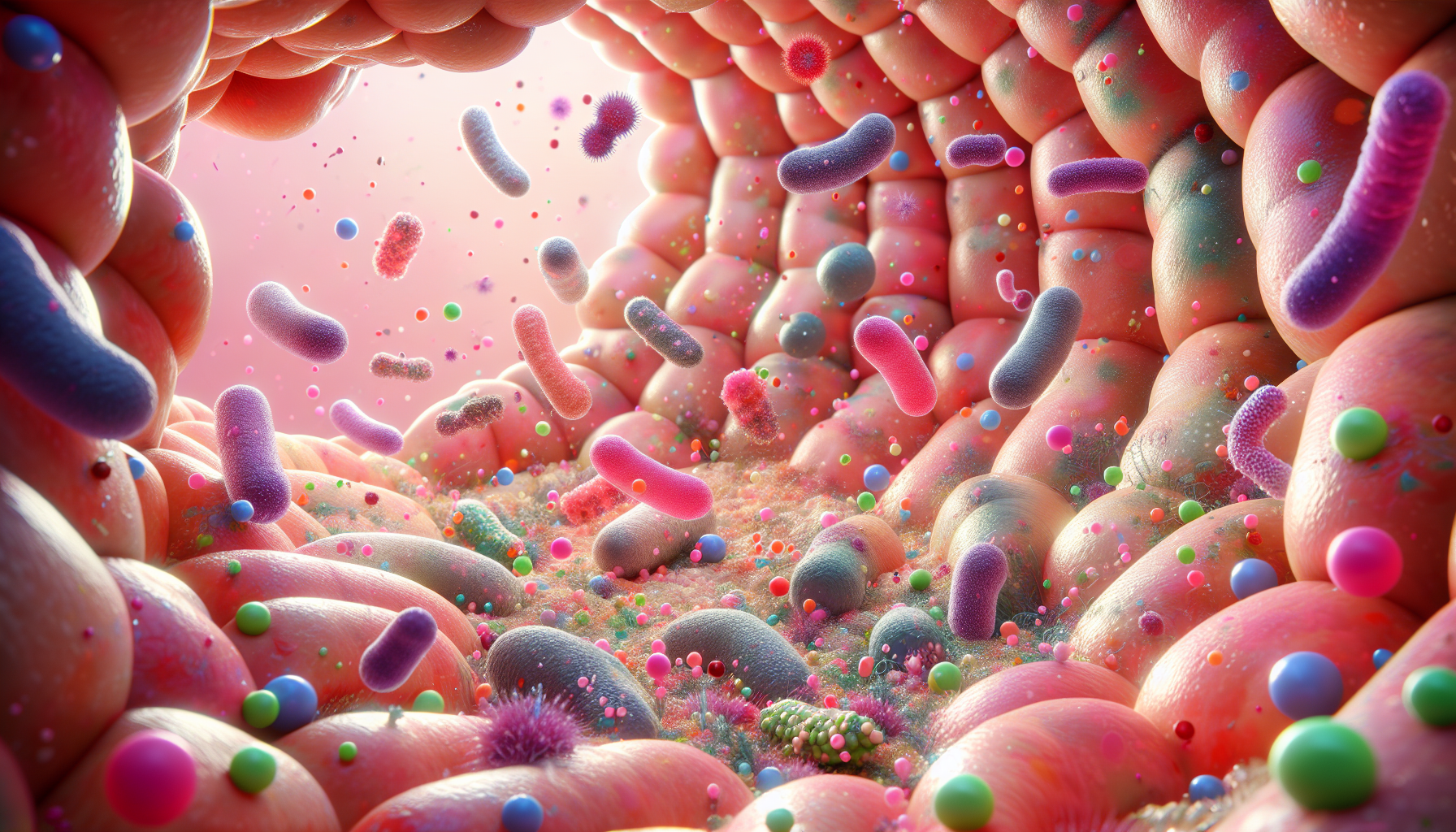The human gut is a complex and dynamic ecosystem, home to trillions of microorganisms that play a crucial role in our overall health. Probiotic therapy, which involves the use of beneficial bacteria to promote a healthy gut flora, has gained significant attention in recent years as a potential treatment for various digestive disorders. This article delves into the latest advancements in probiotic therapy and how they can be harnessed to improve digestive health.
The Human Microbiome and Digestive Health
Our digestive system is intricately linked to the diverse community of microorganisms residing in our gut, collectively known as the microbiome. This symbiotic relationship is essential for digestive health and influences nutrient absorption, immune function, and even our mood. Disruptions in the balance of gut microbiota can lead to conditions such as irritable bowel syndrome (IBS), inflammatory bowel disease (IBD), and antibiotic-associated diarrhea.
Probiotic Therapy: An Overview
Probiotics are live microorganisms that, when administered in adequate amounts, confer a health benefit on the host. They are often found in fermented foods like yogurt, kefir, and sauerkraut or can be taken as dietary supplements. Probiotic therapy aims to restore the natural balance of the gut microbiota, providing relief from gastrointestinal symptoms and promoting a healthy digestive system.
The Latest Advancements in Probiotic Treatment
Recent research has focused on identifying specific probiotic strains with targeted benefits for digestive disorders. Advances in genetic sequencing have allowed for the precise characterization of these strains and their functions within the gut ecosystem.
Strain-Specific Benefits
Certain probiotic strains have been identified for their efficacy in treating specific conditions. For example, Lactobacillus rhamnosus GG and Saccharomyces boulardii have shown promise in reducing the duration of antibiotic-associated diarrhea, while strains like Bifidobacterium lactis BB-12 are effective in alleviating symptoms of IBS.
Synbiotics: Combining Probiotics and Prebiotics
Synbiotics refer to products that combine probiotics with prebiotics—fibers that act as food for beneficial gut bacteria. This combination can enhance the survival and activity of probiotics in the gut, leading to more pronounced health benefits. Research into synbiotics is ongoing, with the potential to develop tailored treatments for various digestive issues.
Personalized Probiotic Therapies
Personalized medicine is at the forefront of healthcare, and probiotic therapy is no exception. Customized probiotic formulations based on an individual’s unique microbiome profile could offer more effective treatments for digestive disorders in the future.
How Probiotic Therapy Supports Digestive Disorders
Antibiotic-Associated Diarrhea
Antibiotics can disrupt the natural balance of the gut microbiota, leading to diarrhea. Probiotics, such as Lactobacillus strains, can help restore this balance and reduce the incidence of antibiotic-associated diarrhea.
Irritable Bowel Syndrome
IBS is a common functional gastrointestinal disorder characterized by chronic abdominal pain and altered bowel habits. Certain probiotics have been shown to improve the gut barrier function and modulate the immune system, providing relief to IBS sufferers.
Inflammatory Bowel Disease
IBD includes conditions like Crohn’s disease and ulcerative colitis. Emerging evidence suggests that probiotics may help manage IBD by reducing inflammation in the gut and promoting mucosal healing.
Integrating Probiotics into a Holistic Approach to Digestive Wellness
While probiotic therapy can be beneficial, it is most effective when integrated into a holistic approach to digestive health. This includes a balanced diet, regular exercise, and stress management. For instance, maximizing nutrient absorption is crucial for individuals with digestive disorders, and probiotics can play a role in enhancing gut function to achieve this.
External Resources on Probiotic Therapy
For those interested in exploring the scientific evidence behind probiotics and their therapeutic potential, several niche resources provide in-depth information:
- International Probiotics Association: Offers comprehensive insights into the latest probiotic research and industry standards.
- World Gastroenterology Organisation Global Guidelines: Provides guidelines on the use of probiotics and prebiotics in the treatment of digestive disorders.
- The American Gastroenterological Association: Features a patient center with educational materials on the role of probiotics in digestive health.
Conclusion
The field of probiotic therapy is rapidly evolving, offering new hope for individuals with digestive disorders. By harnessing the power of beneficial bacteria, we can support a healthier gut microbiome and improve our overall digestive wellness.
For additional reading on the interplay between diet, gut health, and specific conditions, consider exploring the role of diet in gut microbiota and food cravings, the impact of stress on gut health, and strategies to overcome bloating and digestive discomfort.
As we continue to learn more about the gut microbiome and its relationship with our health, the potential of probiotics in preventive care and the treatment of diseases will undoubtedly grow. The future of digestive health looks promising, with probiotics leading the way.



